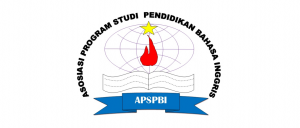Consumer Fraud Mode by Tricking Prices through Hyperbolic and Persuasive Advertising Promotion Language
DOI:
https://doi.org/10.31002/metathesis.v8i1.1563Keywords:
Forms of Fraud, Advertising Promotion, Persuasive LanguageAbstract
In trading activities, sometimes certain people take advantage of the situation to take as much profit as possible from consumers. What these parties do is sometimes done in deceptive ways. However, strangely, consumers are actually tempted by their products, and do not even mind their deception. This has the potential to become a legal problem because of the attempt to deceive consumers with ironic slogans and promotional language. Therefore, the purpose of this research is that the author wants to know how sales cases that occur in minimarkets and online shops have the potential to become legal problems. In addition, the author wants to know what kind of promotional language minimarkets and online shops use to manipulate the selling price so that it looks cheaper to consumers so that it has the potential to become fraud. The data collection used in this research uses observation and documentation methods. After that, the data that has been collected will be analyzed using a qualitative approach. The results show that the use of advertising promotional language can increase sales value. On the other hand, the language has the potential to become a legal case because there are elements of price fraud against consumers in accordance with Article 378 of the Criminal Code.
Downloads
Published
How to Cite
Issue
Section
License
Copyright (c) 2024 Metathesis: Journal of English Language, Literature, and Teaching

This work is licensed under a Creative Commons Attribution-ShareAlike 4.0 International License.
The copyright of the received article shall be assigned to the journal as the publisher of the journal. The intended copyright includes the right to publish the article in various forms (including reprints). The journal maintains the publishing rights to the published articles. Therefore, the author must submit a statement of the Copyright Transfer Agreement.

This work is licensed under a Creative Commons Attribution-ShareAlike 4.0 International License.
In line with the license, authors are allowed to share and adapt the material. In addition, the material must be given appropriate credit, provided with a link to the license, and indicated if changes were made. If authors remix, transform or build upon the material, authors must distribute their contributions under the same license as the original.



